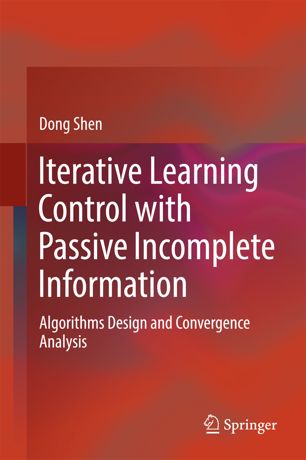

Most ebook files are in PDF format, so you can easily read them using various software such as Foxit Reader or directly on the Google Chrome browser.
Some ebook files are released by publishers in other formats such as .awz, .mobi, .epub, .fb2, etc. You may need to install specific software to read these formats on mobile/PC, such as Calibre.
Please read the tutorial at this link: https://ebookbell.com/faq
We offer FREE conversion to the popular formats you request; however, this may take some time. Therefore, right after payment, please email us, and we will try to provide the service as quickly as possible.
For some exceptional file formats or broken links (if any), please refrain from opening any disputes. Instead, email us first, and we will try to assist within a maximum of 6 hours.
EbookBell Team

4.4
92 reviewsThis book presents an in-depth discussion of iterative learning control (ILC) with passive incomplete information, highlighting the incomplete input and output data resulting from practical factors such as data dropout, transmission disorder, communication delay, etc.—a cutting-edge topic in connection with the practical applications of ILC.
It describes in detail three data dropout models: the random sequence model, Bernoulli variable model, and Markov chain model—for both linear and nonlinear stochastic systems. Further, it proposes and analyzes two major compensation algorithms for the incomplete data, namely, the intermittent update algorithm and successive update algorithm. Incomplete information environments include random data dropout, random communication delay, random iteration-varying lengths, and other communication constraints.
With numerous intuitive figures to make the content more accessible, the book explores several potential solutions to this topic, ensuring that readers are not only introduced to the latest advances in ILC for systems with random factors, but also gain an in-depth understanding of the intrinsic relationship between incomplete information environments and essential tracking performance. It is a valuable resource for academics and engineers, as well as graduate students who are interested in learning about control, data-driven control, networked control systems, and related fields.